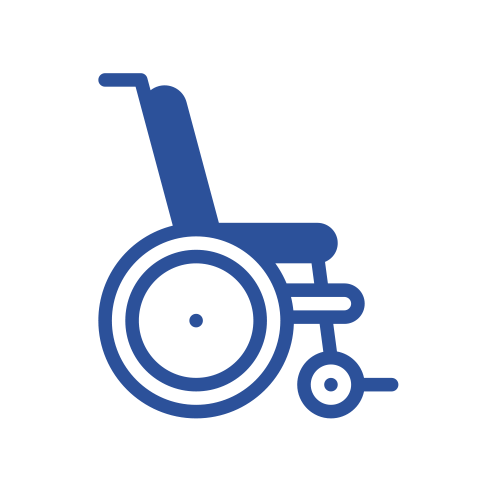Experienced drivers are generally much safer on the road than those with less experience, and many people can continue to drive well beyond their 80th birthday. However, most people find that as they age, driving feels different than it used to. You might discover that driving for long periods of time is no longer comfortable, or your eyes struggle to adapt to driving at night. It’s important to be aware of natural changes as we age, so that we can continue to stay mobile while keeping ourselves and those around us safe.
Use these tips to ensure you can maintain your independence as a driver for as long as possible, while being a safe and sensible road user.
Adapt your car
There are driving aids specifically designed for older people, which can make driving a more comfortable and safer experience. For example, if you have problems turning your neck you can have a parking lens fitted to your car's interior, which will help you to reverse without looking behind you. You can also get seat covers and cushions which can enable you to maintain focus and attention better, by keeping your body comfortable.
Avoid driving at certain times of day
There are certain times of day that you might wish to avoid driving at, in order to reduce the likelihood of any incidents. Rush hour is a very busy time on the roads, and you may find that you feel more at ease when there are less vehicles around. As we age, we tend to feel most tired during early morning and mid-afternoon, so these may also be times that would best be avoided for mature drivers.
Avoid bad weather
Adverse weather such as heavy rain, snow, ice, or fog, can make driving more difficult for everyone. As an older driver, it’s best to avoid driving in conditions such as these, especially if you aren’t used to it. If you need to venture out in bad weather, you could get public transport instead, or take additional precautions such as allowing more space between other vehicles, and driving more slowly.
Consider a zero-unit alcohol limit
Not drinking alcohol while driving is sensible at any age, but as you get older you may find that alcohol affects you differently than it used to. Though you may have been able to drive after having a small drink without any problems a few years ago, it might now be the case that your body doesn’t process alcohol as well, and even the legal amount can make you unsafe on the road. The best option is to entirely avoid alcohol when you know you’ll be driving.
Evaluate your hearing and eyesight
Keeping on top of medical check-ups is essential to remaining a safe driver. Hearing and eyesight in particular need to be routinely evaluated, since sight and sound are an important part of being able to drive safely. As Caruno commented: “As a driver, it’s important that you protect yourself, your passengers and other road users by getting regular eye tests – and if prescribed glasses or contact lenses, making sure you wear them whilst behind the wheel.”
Review medication
Some prescription medications should not be taken while driving, so it’s important to continually review the guidelines of any medications you take. Even some over the counter medicine can make you feel drowsy or affect your reaction times. If you’re in any doubt about whether your medications may affect your ability to drive, consult your doctor or a pharmacist.
Minimise distractions
Some drivers are more easily distracted at any age. However, you may discover that it becomes more difficult to concentrate while driving in later years. If this sounds like you, you can help yourself by limiting distractions while in the car. For example, you might avoid having the radio on, or explain to passengers that you aren’t able to chat while driving.
Allow extra time
Worrying that you’re going to be late can cause you to miss hazards or lower your reaction time on the road. Allowing extra time for your journeys will ensure you have plenty of time to think about your route.
Alter routes
If there are certain junctions or roads that feel intimidating as a driver, you can adjust your route to avoid them. It is worth making your journey a few minutes longer if it will allow you to feel more confident and safer in your driving experience.

 Bathroom Aids
Bathroom Aids Beds & Bed Aids
Beds & Bed Aids Car & Travel Aids
Car & Travel Aids Chairs & Seating Aids
Chairs & Seating Aids Cleaning & Hygiene
Cleaning & Hygiene Comfort & Dressing
Comfort & Dressing Continence Care
Continence Care Cushions & Supports
Cushions & Supports Daily Living Aids
Daily Living Aids Disabled Ramps
Disabled Ramps Footwear & Footcare
Footwear & Footcare Health & Medical Aids
Health & Medical Aids Medical Professionals
Medical Professionals Mobility Scooters
Mobility Scooters Paediatric Equipment
Paediatric Equipment Parts & Spares
Parts & Spares Patient Handling
Patient Handling Stair Lifts
Stair Lifts Therapy & Orthopaedics
Therapy & Orthopaedics Toileting Aids
Toileting Aids Walking Aids
Walking Aids Wheelchairs
Wheelchairs




